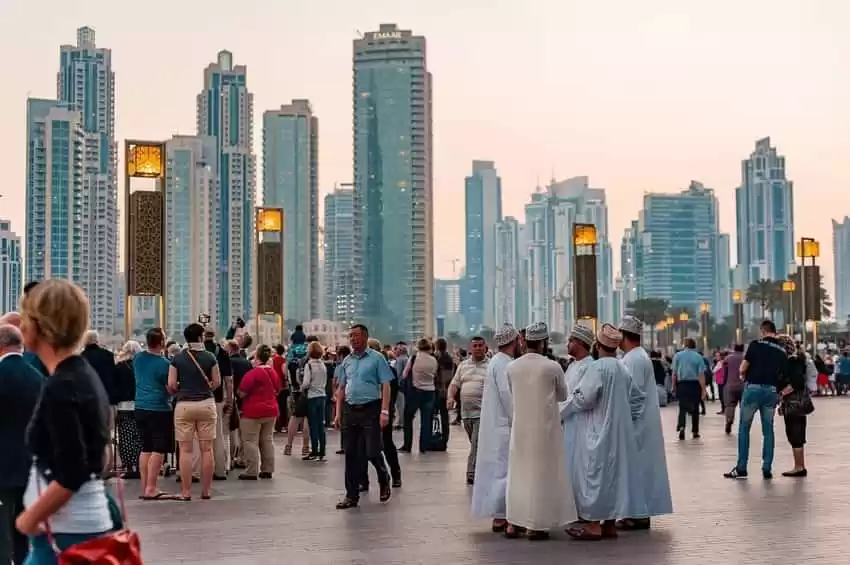For years Friday, the traditional Muslim holy day was considered as a week closure followed by Saturday in UAE and most Persian Gulf Nations. Sunday- Thursday is the working days in the Middle Eastern Countries which was changed in 2006 from the Thursday-Friday weekend pattern followed earlier.
In an epic shift, UAE has now announced it will move its weekend to Saturday and Sunday, with a half-day of rest on Friday making it a total of 41/2 working days per week.
The move is for public sectors and all schools from January 1, 2022. The Private sector is free to decide its weekend.
Addressing any religious sensitivities in the Sunni Muslim-ruled country, where expatriates make up most of the population, the government said work on Friday would end at 12 noon before Muslim prayers, which would be unified on Friday across the UAE.

Why is the weekend change announced?
-The Government in September unveiled plans for 50 new economic initiatives with the goal of attracting $150 billion in direct foreign investment over the next decade. The new schedule is “in line with the UAE’s vision to enhance its global competitiveness across economic and business sectors, and to keep pace with global developments.
-Heavy competition from Saudi Arabia has also been a major factor. The UAE has sped up changes aimed at attracting foreign talent as well as strengthening trade ties beyond the Middle East, especially in Asia and Africa.
-The Government feels that longer weekend would improve employees' work-life balance
-The changes will also help the UAE increase the number of days they do business with the rest of the world, which in turn will boost trade.
- It will help companies involved in the energy sector who already work a Monday-to-Friday week in line with global oil markets. The emirates of Dubai and Abu Dhabi both trade their crude oil on exchanges following Monday-to-Friday hours.
What are the possible downside of this change?
-Traders and investors in the Gulf’s equity markets may struggle to find a balance between the UAE’s new working week and that of other countries in the region.
-The Private companies have a tricky situation in hand, juggling between regional and global markets with a maximum of 48 hours per working week as per Labor Law.
-Pedro Gomes, an economist at Birkbeck, University of London, and author of the book Friday is the New Saturday feels that the Government should have implemented the weekend rules to the whole economy, giving it 4/6 years of adjustment .
-Bloomberg Economic said that the decision will make the UAE more attractive as a regional destination for foreign companies, but the appeal of private-sector jobs will further diminish if the 4-1/2 workweek doesn’t extend beyond government entities.
As per reports, The announcement comes months after the UAE said it was allocating more than $6 billion to help push 75,000 citizens into private-sector employment. Like other Gulf countries, the UAE has a large proportion of citizens working in state jobs that offer better pay and shorter hours.
Iceland has already followed the 4 days working week this year which has turned into a overwhelming success. Do you feel UAE will be able to replicate the same? Leave your thoughts in the comments.
Think we missed out on something? Let us know in the comments section below. Or write about it here and earn Tripoto Credits!




































